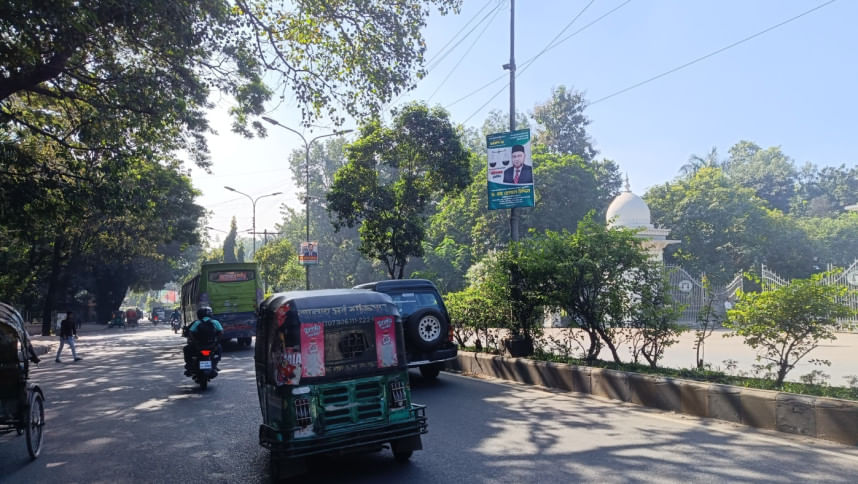Verdict on Hasina: Dhaka sees barely any public transport

Public transport in Dhaka remained scarce today as the capital braced for the verdict in the case involving former prime minister Sheikh Hasina. With very few buses operating and limited public movement, the usually congested city appeared unusually subdued.During visits to Moghbazar, Bangla Motor, Kakrail, Matsya Bhaban, and the High Court area, only a handful of private cars and motorcycles were seen on the roads. Rickshaws dominated major intersections, becoming the primary mode of transport...
Public transport in Dhaka remained scarce today as the capital braced for the verdict in the case involving former prime minister Sheikh Hasina. With very few buses operating and limited public movement, the usually congested city appeared unusually subdued.
During visits to Moghbazar, Bangla Motor, Kakrail, Matsya Bhaban, and the High Court area, only a handful of private cars and motorcycles were seen on the roads. Rickshaws dominated major intersections, becoming the primary mode of transport for those travelling despite heightened tension.
Metro rail stations also saw lighter-than-usual passenger turnout.
Security was visibly tightened at major intersections. Additional checkpoints, barricades, and patrol teams were deployed across key points to regulate movement and maintain order.
Law enforcement presence was particularly heavy on the High Court premises, where police, BGB, and other security personnel were stationed in significant numbers.
Commuters reported difficulty reaching their destinations due to the severe shortage of buses and other public transport. Many attributed the disruption to concerns over potential unrest surrounding the verdict.
Meanwhile, in front of the main gate of the High Court, a group of people, including family members of those killed during last year's July uprising, took position demanding capital punishment for Sheikh Hasina.
Holding banners and photographs, they called for what they described as "justice long overdue."
Law enforcement officials said they were prepared to respond swiftly to any situation that may arise as the day progresses.
The International Crimes Tribunal-1 is scheduled to deliver its verdict today in the crimes against humanity case against deposed prime minister Sheikh Hasina and two of her former top aides. Former inspector general of police Chowdhury Abdullah Al-Mamun was brought to the tribunal around 9:05am ahead of the ruling.